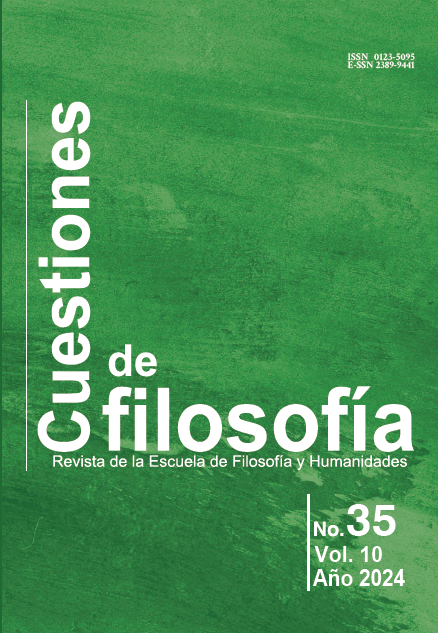From the Pharmakon to Technodiversity. A Brief Genealogy of a Conceptual Heterogenesis

Abstract
The paper aims to provide a set of conceptual coordinates that can delineate the contours of the philosophical legacy of Bernard Stiegler’s pharmacology, thus indicating a working place for the philosophy of technology which, while opening up to new questions, also acquires its theoretical and political meaning. In order to describe the Stieglerian perspective, its theoretical production and its maturation over almost three decades, even in a chronological and genealogical sense, the method adopted is that of a double conceptual comparison, on the one hand, between a predecessor, namely Jacques Derrida, and Stiegler, through which the conceptual variation of the pharmakon from the first to the second author will be analysed, as well as the elements of disagreement between both of them, with particular reference to tertiary retention and the Stieglerian delinking from the deconstructive framework; on the other hand, between Stiegler and one of his continuators, Yuk Hui, where the focus will shift towards the pharmacology of the digital and, finally, towards the concept of technodiversity initially developed by the Chinese philosopher.
Keywords
pharmakon, différance, tertiary retention, deconstruction, technodiversity
References
- Aristotele (1999). Fisica (M. Zanatta, Trad.). Torino: Utet.
- Auroux, S. (1993). La Révolution technologique de la grammatisation. Paris: Mardaga.
- Bennington, G. (1996). Emergencies. Oxford Literary Review, 18 (1), pp. 175-216. https://doi.org/10.3366/olr.1996.009
- Berns, T. et Rouvroy, A. (2012). Gouvernementalité algorithmique et perspectives d’émancipation. Réseaux, 177, pp. 163-196. https://doi.org/10.3917/res.177.0163
- Buseyne, B., Tsagdis, G. and Willemarck, P. (Eds.) (2023). Memories of the Future. Thinking with Bernard Stiegler. New York: Bloomberg.
- Derrida, J. (1968). La voce e il fenomeno (G. Dalmasso, Trad.). Milano: Jaca Book.
- Derrida, J. (1978). La farmacia di Platone (S. Petrosino, Trad.). Milano: Jaca Book.
- Derrida, J. (1998). Della grammatologia (G. Dalmasso, Trad.). Milano: Jaca Book.
- Halpin, H. and Hui, Y. (2012). Collective individuation. The Future of the Social Web. Unlike Us Reader, 3, pp. 103-116. https://www.researchgate.net/publication/277309659
- Heidegger, M. (1976). Saggi e discorsi (G. Vattimo, Trad.). Milano: Mursia.
- Heidegger, M. (1998). Il concetto di tempo (F. Volpi, Trad.). Milano: Adelphi.
- Heidegger, M. (2005). Essere e tempo (P. Chiodi, Trad.). Milano: Longanesi.
- Husserl, E. (2016). Per la fenomenologia della coscienza interna del tempo (A. Marini, Trad.). Milano: Franco Angeli.
- Hui, Y. (2020). Fragmentar el futuro. Ensayos sobre tecnodiversidad (T. Lima, Trad.). Buenos Aires: Caja Negra.
- Hui, Y. (2021). Cosmotecnica. La questione della tecnologia in Cina (S. Baranzoni, Trad.). Roma: Nero.
- Leroi-Gourhan, A. (1977). Il gesto e la parola. Volume I e II (F. Zannino, Trad.). Einaudi: Torino.
- Leroi-Gourhan, A. (1994). Ambiente e tecniche (M. Fiorini, Trad.). Milano: Jaca Book.
- Roberts, B. (2005). Stiegler Reading Derrida: The Prosthesis of Deconstruction in Technics. Postmodern Culture, 16 (1). https://doi.org/10.1353/pmc.2006.0009
- Ross, D. (2018). Introduction. B. Stiegler, The Neganthropocene (pp. 7-32). London: Open Humanities Press.
- Simondon, G. (2020). L’individuazione alla luce delle nozioni di forma e informazione (G. Carrozzini, Trad.). Milano Udine: Mimesis.
- Simondon, G. (2021). Del modo di esistenza degli oggetti tecnici (A. S. Caridi, Trad.). Nocera Inferiore: Orthotes.
- Stiegler B. (2000). La fidélité aux limites de la déconstruction et les prothèses de la foi. Alter, 8, pp. 237-263. https://revue-alter.org/alt8.htm.
- Stiegler, B. (2006). La peau du chagrin. Ou l’accident franco-européen de la philosophie d’après Jacques Derrida. Rue Descartes, 52, pp. 103-112. https://doi.org/10.3917/rdes.052.0103
- Stiegler, B. (2014). Prendersi cura I. Della gioventù e delle generazioni (P. Vignola, Trad.). Napoli-Salerno: Orthotes.
- Stiegler, B. (2015). Platone digitale. Per una filosofia della rete (P. Vignola e F. Vitale, Eds.). Milano-Udine: Mimesis.
- Stiegler, B. (2016). Dans la disruption. Comment ne pas devenir fou?. Paris: Les Lien qui Libérent.
- Stiegler, B. (2018). Qu’appelle-t-on panser? L’immense régression. Volume I. Paris: Les Liens qui Libérent.
- Stiegler, B. (2019). La società automatica. L’avvenire del lavoro. Volume I (S. Baranzoni, I. Pelgreffi e P. Vignola, Trads.). Milano: Meltemi.
- Stiegler, B. (2020). Noodiversity, technodiversity. Elements of a New Economic Foundation Based on a New Foundation for Theoretical Computer Science. Angleaki Journal of the Theoretical Humanities, 25 (4), pp. 67-79. https://doi.org/10.1080/0969725X.2020.1790836
- Stiegler B. e Collettivo Internation (Eds.) (2020). L’assoluta necessità. In risposta ad António Guterres e Greta Thunberg. Milano: Meltemi.
- Stiegler, B. (2021). La miseria simbolica I. L’epoca iperindustriale (R. Corda, Trad.). Milano: Meltemi.
- Stiegler, B. (2023). La tecnica e il tempo I. La colpa di Epimeteo (P. Vignola, Trad.). Roma: LUISS University Press.
- Vitale, F. (2020). Making the Différance: Between Derrida and Stiegler. Derrida Today, 13 (1), pp. 1-16. https://doi.org/10.3366/drt.2020.0216